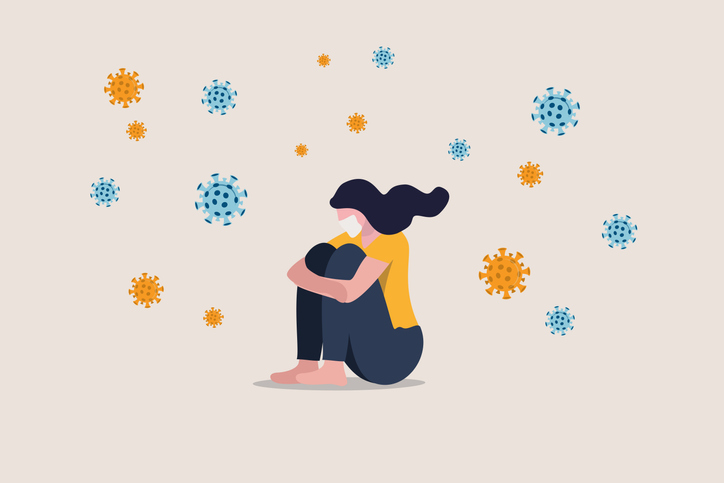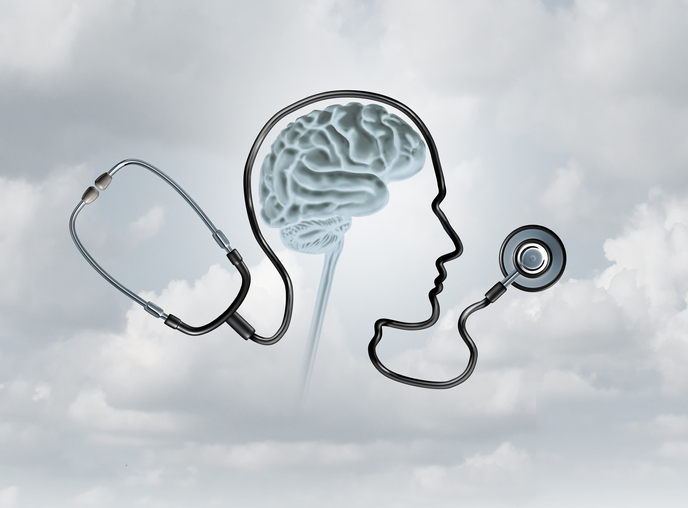
Another Pandemic On Our Hands We Must Be Proactive About? Suicide
By Joy Stephenson-Laws, J.D.,Founder
He was young, good-looking, popular and appeared to be in a very loving relationship. So why would he commit suicide?
If we knew the answer to this question, perhaps we would be able to save more lives from this devastating issue.
According to the Centers for Disease Control and Prevention (CDC), suicide is the 10th leading cause of death in the United States. The CDC also reports that more than 48,000 people in the U.S. died from suicide in 2018. That’s one death every 11 minutes! Furthermore, reports show that suicide continues to rise in the United States.
The young man I referred to earlier was 31-year-old Byron Bernstein, and he was a popular Twitch streamer. Twitch is a live streaming platform for gamers. According to multiple reports, Bernstein died just hours after proposing to his girlfriend.
He posted on Twitter, "I know I'll always be a little too crazy... and this is proof... but at least you'll never be bored. Will you marry me, Becca?"
(More details on how he exactly died have yet to be released).

Loss of control
On the other hand, Bernstein also recently tweeted some very concerning messages.
"Ahh, I feel bad for anyone who has to deal with my insanity," he shared.
"Please just know in these situations the insane person does not feel in control of their actions."
I think Bernstein really highlighted one of the biggest issues with mental illness and suicide. People can be so desperate, in so much pain and feel such a lack of control that they take their own lives.
In a YouTube video from this past January, Bernstein shared that he had been struggling with depression. He also lost one of his older brothers to suicide. The middle brother, Gary Bernstein, is now the only living Bernstein brother.
There is some evidence that depression may be hereditary. And although we don’t know the exact cause of depression, we know that there are several environmental factors that can influence it. Some examples would be trauma, substance abuse and even a poor diet. Of course, not all depression leads to suicide. But having severe depression increases the risk of suicide as well as having suicidal thoughts.
COVID-19 and DepressionAnd what’s particularly concerning now is that with COVID-19, people appear to be more depressed and anxious than ever. Isolation, job loss, money issues and caring for elderly family members are just a few of the things that many people are struggling with right now that may lead to very depressive states. Not to mention, just the fear of catching the virus is a lot to handle. There’s a reason why you might want to take a break from watching the news and seeing the climbing infections and death toll from the coronavirus.
Lorna Breen, a top emergency room doctor who worked at a hospital in Manhattan treating COVID patients, recently died by suicide.
“She tried to do her job, and it killed her,” her father said.
“COVID-19 has been associated with other suicides that drew widespread media attention, including a German state finance minister who appears to have taken his own life while worried about economic disaster, a British teenager distressed by social distancing measures, and an Italian nurse who feared spreading the virus to other people. One county in Washington state reported a surge in deaths by suicide, mostly of men in their 30s and 40s, since the outbreak began,” according to one report.
I’m not highlighting these stories to instill fear in people, but I think it’s important to acknowledge that along with the coronavirus pandemic there is also a depression and mental illness pandemic.
“Depression is a pervasive disorder: 17.3 million American adults experience at least one depressive episode each year,” according to a recent report from Psychology Today.
And we are also seeing that depression and suicide may really come to the surface in times of crisis.
Recent evidence suggests that a third of Americans now exhibit signs of clinical anxiety or depression as we navigate the coronavirus pandemic.
How can we be proactive?
First, if you are feeling suicidal or know someone that may be, reach out to the National Suicide Prevention Lifeline.
Perhaps the best advice I have ever received about being helpful to those who may be suicidal was from my son. His entire response is worth repeating.
"Many times unhappy people appear happy and will not tell you how miserable they really are. I have heard that many comedians are unhappy. I was probably one of the funniest people when I was depressed. I mean, look what happened to Robin Williams. So you have to look for signs that may show that we are not really being up front or truthful with you about how unhappy we really are. Some signs may be drug and alcohol use, weight gain, a short temper, slacking on the job, sleeping more than the average person, personal hygiene issues – the list goes on.
But there are usually signs. Once you see the signs, the opening conversation should not be that we need to go get help. It should also not be about what we want to do with our lives. At that point in our lives we are not thinking straight, and many times we don’t want to be alive. So talking to us about rehab or what we want to do with our lives is a non-starter.
If you do notice signs of unhappiness, then nonchalantly ask how we are doing or what we are looking forward to doing. Look for an answer that is not work or school related. Having a good job or doing well in school does not mean you are truly happy. It just means you are doing well according to societal standards. It is more important that you are happy with yourself and personal relationships, rather than your job or being in school. Remember, it is not what you do but how you feel about what you do.
Remember the quote from my last blog...
“People assess you based on what you do as opposed to how you feel about what you do.”
Find an activity or location, like a theme park or a mini vacation, where we can have some fun, get comfortable and open-up. If we have a preference in activity, volunteer to do it with us so we can unwind and logically figure out the best course of action, like getting help, etc. At the end of the day, we only have one life. In this one life, people tend to think there are strict guidelines on how to live that life. Rather than following those guidelines, take a step back and explore what makes you and others truly happy. "
Another important thing to do is to think about your immune system.
Due to COVID-19, we need to be thinking about the best ways to keep our immune systems in top shape. The truth is that pandemic or no pandemic, we should always be proactive about maintaining a healthy immune system so that our bodies are in the best possible position to fight off all types of disease.
Interestingly, the things that we can do to help keep our immune systems strong are also things that may help keep depression away. These include:
- Eating a nutrient-dense, anti-inflammatory diet (inflammation in the brain is believed by many medical professionals to contribute to depression and mental illness)
- Exercising regularly
- Drinking alcohol in moderation (if at all)
- Getting good quality sleep
It is also highly recommended that you take routine nutrient tests in order to identify any nutrient imbalances or deficiencies that you may have (and so many of us do!). Not being nutritionally balanced may contribute to both a weakened immune system and depression. If the test reveals that you are not nutritionally balanced, a competent healthcare professional can work with you on making the necessary dietary changes and recommend quality supplements if necessary.
Finally, read here to learn about eight minerals that may help you cope with depression.
Enjoy your healthy life!
The pH professional health care team includes recognized experts from a variety of health care and related disciplines, including physicians, attorneys, nutritionists, nurses and certified fitness instructors. This team also includes the members of the pH Medical Advisory Board, which constantly monitors all pH programs, products and services. To learn more about the pH Medical Advisory Board, click here.







